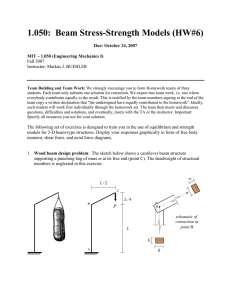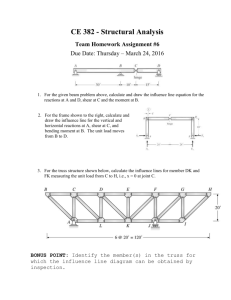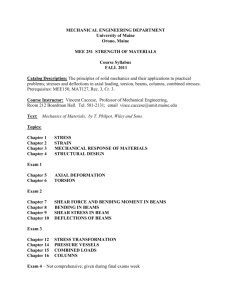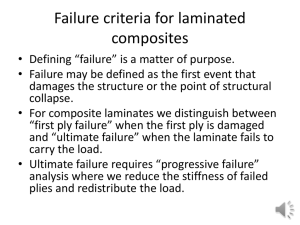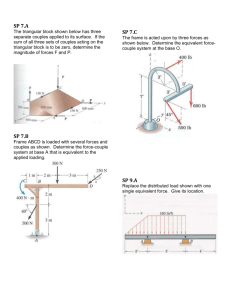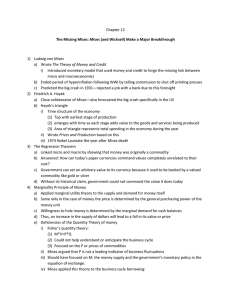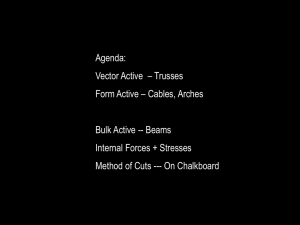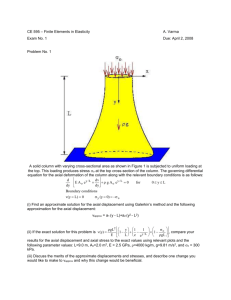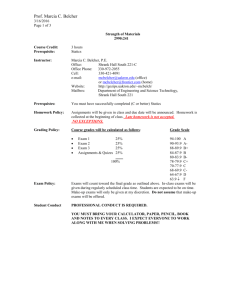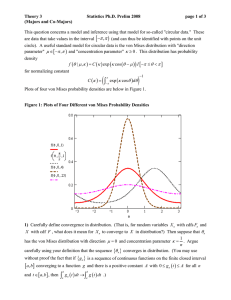Experiment 1new
advertisement
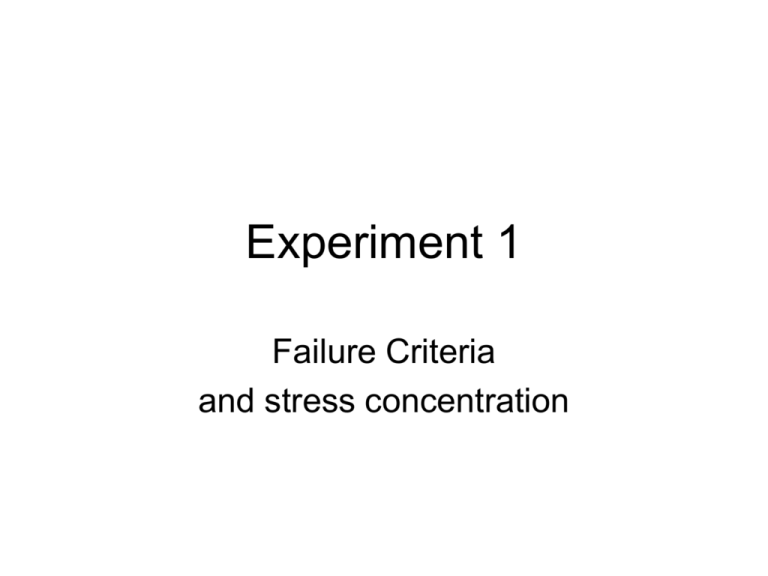
Experiment 1 Failure Criteria and stress concentration Static failure criteria 1. Ductile material ( f 0.05) Max. Shear theory Distortion energy Ductile Coulumb-Mohr 2. Brittle material ( 0.05 ) Max. normal stress Brittle Coulumb-Mohr and modification f Maximum shear theory A Sy Case 1 Case 2 Case 3 Distortion energy theory Von Mises stress In general form Plain stress or plain strain Maximum normal stress theory Coulumb-Mohr and modification S value External load S For bending: Mc I , therefore, S I c For torsion: Tc J = , therefore, S J c For axial load: F = , therefore, S A A Various load Fatigue Testing D=5mm or 10mm Endurance limit for cast iron (Sn) Correction of endurance limit Sn S’n Sn S’n Stress concentration and stress raisers • Stress concentration factor max. local stress Kf nominal stress Varying stress in machine element S max S min Sa 2 S S min S m max 2 Solving problems in which the stress is a combination of alternating stress and constant stress For compression mean load, no effect on endurance limit Solderberg Diagram 1 S m KS a N Sy Sn Gerber line 2 Sm KS a 1 Su / N S n / N For shear load 1 S ms KS as N S ys S ns Designing for variable load and finite life How to raise the endurance strength 1. Autofrettage 2. Shot peening and surface rolling 3. Heat treatment 4. Laser treatment 5. Electro polishing 6. Others Design Procedures Static Load design 1. Determine the external force, and configuration of the structure. 2. Determine the material of the structure. 3. Find the equation(s) of the stress in the structure. 4. Determine the criteria of failure to be used. 5. Find the S value of the structure. 6. According to the S value find the appropriate shape of the cross section. Design for the various load 1. 2. 3. 4. 5. 6. 7. 8. 9. Determine the type of the external force, and configuration of the structure. Determine the material of the structure. Use fully corrected endurance limit for bending, Sn. Apply stress concentration factors to torsion, bending and axial stress components. 1 Multiply any alternating axial stress component by the factor kc ,ax . Enter the resultant stress in to a Mohr’s circle analysis and find the principle stresses. Find the Von mises alternating stress a . Find the Sa/N according the failure criteria used. Compare Von mises stress with Sa/N to find the dimension of the part. Practices 1 1. Try to write an Excel program which can calculate the principle static stress, principle shear stress, Von Mises stress of a simply support beam of circular cross section under bending load, axial load and torsion load. (see figure in next page) 2. Use Distortion energy theory to find the dimension of the beam under the loads given in the figure in next page. Fb Torque 450 1000 Fb=10kg Fc=10kg Torque=10 N-m Material : ultimate strength = 400MPa Yielding strength =250MPa FC Practices 2 1. Try to write an Excel program which can used the Solderburg Criteria to calculate Sa under different loading conditions and safety factor N. 2. Use Von mises stress to find the dimension of the beam under the loads given in the figure of practice 1. If all the load is varied as shown in figure (c) of following page. The surface of the beam is machined (please write a Excel program to do this). Sa Sm S N 150MPa
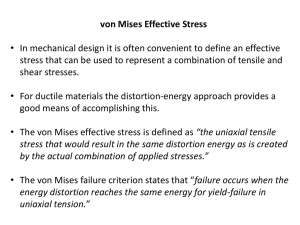
![Applied Strength of Materials [Opens in New Window]](http://s3.studylib.net/store/data/009007576_1-1087675879e3bc9d4b7f82c1627d321d-300x300.png)
